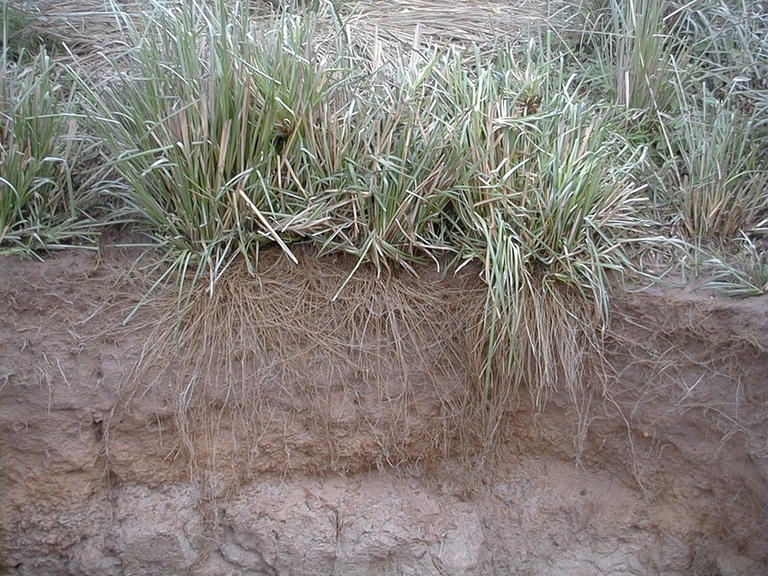
Majuli, the world’s largest river island in Assam State of India is quickly disappearing into the Brahmaputra river due to soil erosion.
This heavy metal tolerant plant is considered miraculous in many regions of the world. Thanks to its many thin roots it prevents soil erosion.
Vetiver (Chrysopogon zizanioides e Chrysopogon nemoralis) is a perennial bunchgrass of the Poaceae family. It is native to India but it is also grown in Laos, Vietnam, Thailand and in the areas of subtropical climate. It is used in cosmetics as a scented essence.
But the biological properties of this bunchgrass, considered a pioneer species (the first to colonize previously disrupted or damaged ecosystems), are not only used in cosmetics. In fact, it is renowned in the engineering sector because it tackles hydrogeological instability and erosion.
The plant, indeed, can grow up to 1.5 metres high and, what’s more important, has many deep roots. These are very thin and resistant and they can grow down to 5 metres below the surface in any type of soil. Moreover, it is an extremely resistant plant that can grow in acidic and basic soils with pH included between 4 and 12, saline areas with temperatures included between -15°C and + 55°C.
Therefore, it is widely used in bioengineering. Roots make the soil more compact, avoiding that it be washed out by intense rain or in case of river overflowing. If planted on a slope, it can avoid the movement of soil layers and landslides. It also absorbs large amounts of water, preventing them to stay on the surface and to be transported downstream.
Siamo anche su WhatsApp. Segui il canale ufficiale LifeGate per restare aggiornata, aggiornato sulle ultime notizie e sulle nostre attività.
![]()
Quest'opera è distribuita con Licenza Creative Commons Attribuzione - Non commerciale - Non opere derivate 4.0 Internazionale.
Majuli, the world’s largest river island in Assam State of India is quickly disappearing into the Brahmaputra river due to soil erosion.
This year, Earth Day calls for us to restore damaged ecosystems, a challenge embraced by the UN through the Decade on Ecosystem Restoration.
A century of lead mining in Kabwe, officially abandoned two decades ago, has poisoned millions of people and left the city with deadly concentrations of toxic lead in the soil and water.
Indigenous communities in India’s Rayagada district mitigate the challenges of water scarcity by storing rainwater in subsurface soil. A cheap and concrete solution to a global problem.
Desertification negatively affects the soil and ecosystems, with dire impacts on people due to the increased risk of food insecurity.
The US singer Jason Mraz is the voice narrating the short film The Soil Story, movie that highlights the importance of a healthy soil for a healthy planet.
Intensive apple production in Europe uses too much chemicals. The most frequentlly found substance was a fungicide and there are also seven types of pesticides not approved by the EU.
Between 2011 and 2012 China has produced more cement than the United States throughout the 21st century. This is one of the most surprising figures of the report Vado a vivere in città: il boom dell’urbanizzazione in Cina (Going to live in cities: urbanisation boom in China), realised by Cecilia Attanasio Ghezzi and Nicola Longobardi for China
Soil provides us with our livelihoods and protection. The United Nations declared it the protagonist of 2015 in order to spotlight risks threatening it.








